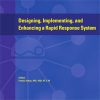The Spleen: The Forgotten Organ in AKI of Critical Illness
ncbi.nlm.nih.govAcute kidney injury (AKI) is an increasing medical burden and is independently associated with mortality. AKI is a common comorbidity in the intensive care unit (ICU), with sepsis-associated AKI seen in almost a quarter of all ICU patients. Due to the high mortality seen in these patients, improved therapeutic options are needed.
Data from experimental studies in animals support observations in humans that the host immune response to sepsis and trauma contributes to multiorgan failure and the high morbidity and mortality seen in critically ill patients.
The spleen, a major component of the reticuloendothelial system, appears to be a key player in the “cytokine storm” that develops after infection and trauma, and the resultant systemic inflammation is regulated by the autonomic nervous system.
Over the past decade, evidence has suggested that controlling the splenic cytokine response improves tissue function and mortality in sepsis and other inflammatory-mediated diseases. One pathway that controls the response of the spleen to sepsis and trauma is the cholinergic anti-inflammatory pathway, and it may provide a key target for therapeutic intervention.
This review highlights the potential use of ultrasound to stimulate the cholinergic anti-inflammatory pathway and reduce systemic inflammation and disease severity.

















